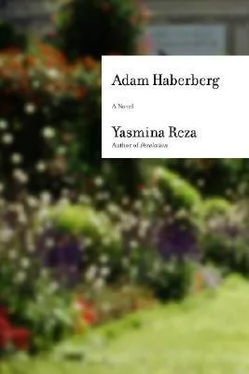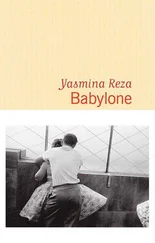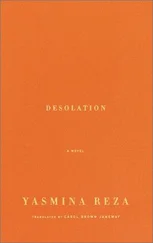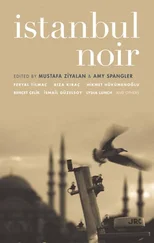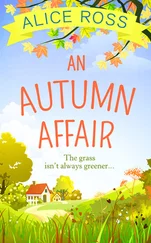“You've not changed at all, Marie-Thérèse,” he says, himself surprised at the truth of the statement.
“I'm better now. I looked like a country bumpkin.”
“You looked like a country bumpkin but your face hasn't changed.”
“Neither has yours, very much, apart from your hair.”
He has black, curly hair, he's slim, he's wearing a checked shirt. He thinks it's clever in the photo to be a rebel. He has a phony look about him. He's not very different from Serge Gautheron, of whom he has no recollection, but who has the same build, wears the same colors, and displays the same ridiculous arrogance. Quite the opposite of Tristan Mateo, he sees, who's a head taller than everyone else with a strikingly detached air in his flowing white California-style shirt. Tristan Mateo is reading Jim Morrison's The Lords and the New Creatures , he reads Herbert Marcuse and Jerry Rubin, smokes and imbibes all the substances of the period without ever feeling any the worse for it or flagging on the rugby field. Tristan Mateo owns Alice Canella. Alice Canella no longer exists, not for any of us, Adam tells himself, and the idea has a bitter and soothing savor. A barely perceptible savor, he observes, the tang of a fleeting mist instantly dissipated. Marie-Thérèse has gone to turn over the potatoes. Adam wonders where they will eat their supper. It must be possible for the two of them to sit together in the kitchen. Or else here, he supposes, at the low table. Adam can see no other table and concludes that Marie-Thérèse doesn't entertain her friends, or at least only one friend, or else friends who eat off their laps, sitting politely side by side, with their napkins and their plates on their tightly clenched knees. And he wonders who these friends are that come to eat dinner off their laps in Viry-Châtillon, in Marie-Thérèse Lyoc's neat and tidy apartment. And he concludes how lucky it is that such living room friends exist, whether in Orly now or Suresnes then, coming in at the main door, making their way into people's rooms with loud voices, instantly creating a good atmosphere, squeezing onto the sofa without any fuss, squabbling happily, laughing and knocking back the drinks. I could write about these Saturday friends, he thinks, after all, I know them, I see them flocking together like birds, I combine periods, I combine emotions, I shuffle lives like playing cards. Do you entertain friends here? he says. “It depends,” she replies from the kitchen, wiping her hands on the dishcloth. “Not all that much, in fact.”
“You don't throw little dinner parties here from time to time?!”
“Not all that much. Would you like to eat in the kitchen or the living room?”
“Wherever you like.”
“It's easier to sit in the kitchen.”
“Fine.”
“But the light's more pleasant in the living room.”
“Whichever you prefer.”
“You decide.”
“It's all the same to me.”
“Choose.”
“In the kitchen,” says Adam, and immediately thinks the living room would be better. “It'll be ready in five minutes,” she says, coming back to sit opposite him, and picking up her glass of cherry liqueur, content with the situation, it's hard to know exactly why. Adam has put the class photo on the table. Marie-Thérèse picks it up and pores over it. She knows that photo by heart, thinks Adam, that class photo has traveled through the years like her face, changing imperceptibly, receding in time, he tells himself. She's uncovering a whole carnival of ghosts, this evening, poor thing, he thinks, as she sits there unexpectedly face-to-face with the bald, paunchy old man they used to call Adam Haberberg. He remembers the name in its youth, he remembers how Adam Haberberg used to have quite a different ring to it, it didn't mean what it says today. Unlike Marie-Thérèse Lyoc, he thinks. Marie-Thérèse Lyoc has always meant Marie-Thérèse Lyoc. Marie-Thérèse Lyoc is definitive, he thinks. Not Adam Haberberg. It was a name you could count on, it was, in fact, the only thing his parents had given him that could be counted on. When you're called Adam Haberberg you don't expect to write pulp fiction and you don't expect to be laid low by thrombosis at the age of forty-seven before any recognition , however small, however hybrid, however fatally ephemeral, has occurred. Adam always thought his career had, inexplicably, got off on the wrong foot. To win at “421,” Cohen had instructed him, you have to want to win. If you leave it to fate, the dice can sense it, they're not motivated. Cohen won every time. Adam would warm the dice in his hand, blow on them, call out the numbers in advance in a resolute voice and lose. The dice responded to the silent will, not the antics of a yappy little dog. Did things go the same way in life? Does life respond to the silent, unspoken will, which is not only the will but the certainty that the world is on offer and isn't going to go on its way without you. For to win, he'd learned you don't need to want to win, you need to believe you will win. Holding and believing, he remembers replying to Goncharki without stopping to think, the masculine verbs. Without stopping to think, he muses, which doesn't mean without lying, it would be wrong to confuse spontaneity with truth, he tells himself. To survive, he thinks, one has had to construct postures conducive to self-respect. You can't say I haven't changed at all, says Marie-Thérèse. Then she adds, there's something I want to show you. But she doesn't stir. What? says Adam.
“A letter.”
“A letter from whom?”
“From Alice.”
Adam is silent and Marie-Thérèse doesn't stir. They remain thus, unmoving, and finally Marie-Thérèse says, yesterday at a crossroads, on the Boulevard Sebastopol, I was waiting with some other people to cross. At a given moment there were no cars either to the left or to the right and the light was still green. Everyone crossed except me. Even when I could still have done it, I didn't, I don't know why, I waited all alone on the sidewalk till the light turned red. Adam expects something more but there's nothing more. Marie-Thérèse has finished. They fall silent again and then Marie-Thérèse says, that's how it is in life, I don't dare, I'm too law-abiding. Now I'm putting the eggs in.
She gets up, goes back into the kitchen. He sees her pouring the beaten eggs into the frying pan and going through the actions of the omelette. Adam gets up and joins her. The kitchen is long and narrow; he goes up to the window at the end. In the darkness, several bare trees, buildings with no windows, lampposts,
tiers of seats. What's that you can see? he says.
“The football stadium.”
“And the road beyond, what's that?”
“That's the road leading from Route Nationale 7 to the throughway.”
“Can I do something?”
“You can uncork the wine. Would you like salad?”
“Fine.”
“Sit down.”
Adam sits down. He's thinking about the letter.
Don't say what was that letter from Alice? he tells himself.
“Do you ever meet up with Serge Gautheron?”
“No. He's remarried.”
“I see.”
“He has a son.”
“Shall I give you some wine?”
“Go ahead.”
“What was that letter from Alice?”
“I'll show it to you.”
“I really don't care. So what was it?”
“You'll see.”
Marie-Thérèse slides the omelette onto a round dish, which she sets between them on the narrow table. It's a beautiful potato omelette, well folded, moist, a perfect omelette, thinks Adam. Imagine, if someone had said to me this morning, tonight you'll be dining here with Adam Haberberg! She laughs as she serves him. On the counter along the wall, there's a lineup of appliances. A kettle, ajuicer, notes Adam, a blender, a mixer, an electric coffeemaker, a toaster. Adam closes his eyes. The green fluorescent piked shoe is there, confirming the supremacy of solitude. Do you use all these machines? he says. Oh yes, she lights up in an unexpected way, yes, less than in the old days, of course, but I certainly do.
Читать дальше
